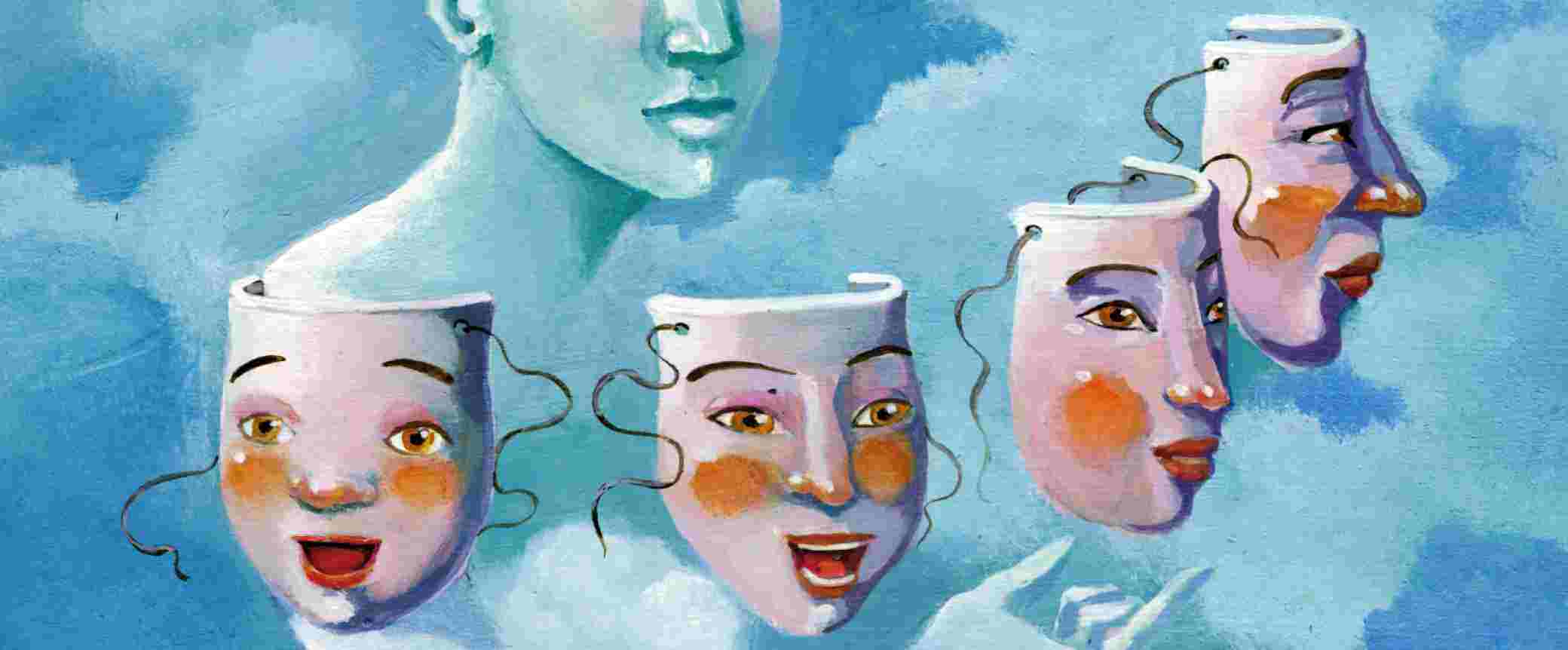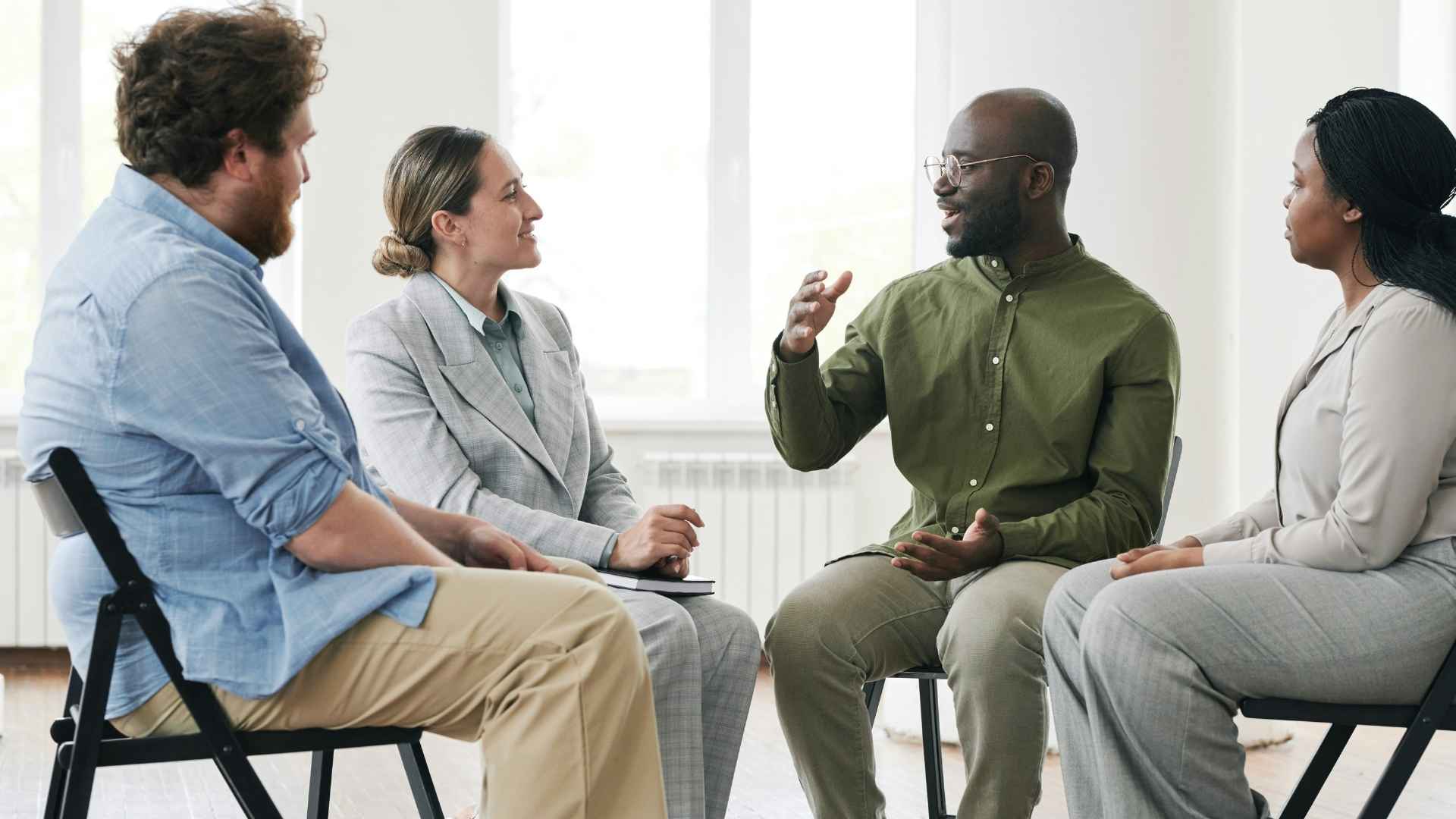Why become a psychotherapist? (Part I)

What motivates someone to train as a psychotherapist, counsellor or analyst? What makes them embark on this long and often demanding journey?
We asked bpf members to help us answer this question. You can read their responses below.

When I reflect back over 25 years in private practice as a psychoanalytic psychotherapist, it seems to me, that my whole adult career path was an unconscious preparation for this role.
I started off doing a degree in English literature where the main thrust of exploration is the understanding of the motivation and dynamics of the characters involved, what is being played out in the novel. As a teacher I became more interested in what made children behave in a particular way and why they were often labelled at very young ages by teachers. This led me to work in a centre for traumatised children and to train as a social worker.
Having worked in a child and family setting I decided to specialise at a senior level in loss/ adjustment with terminally ill AIDS and cancer patients. Being able to establish rapport and to stay with great pain both physical, emotional and psychological was crucial in this role. This work led me to deepen my clinical skills and work as a supervisor And trainer with a Bereavement Service.
These multifaceted clinical experiences had prepared me for a fascinating journey into personal therapy which was and has been a bedrock to my clinical and theoretical training and practice. Training is necessarily, a hard one offering many challenges but multiple rewards in terms of self-development and integration. It is not for the faint hearted, as the work itself can be painstakingly slow and daunting. My role as a psychoanalytic psychotherapist has allowed me to lecture internationally and to write books and articles being made a member of the society for women writers and journalists.
During my practice I have felt honoured to come alongside courageous patients who have faced unthinkable psychic pain and to explore the power of the unconscious and its workings in everyday life. I can think of no other profession that would offer this level of continuing fascination, exploration, reflection and humble satisfaction in watching people slowly unfold and make of the therapy what they are able to allow/endure. Always before me is Carl Jung’s Dictum “all is yet to be revealed”.

In my twenties I found myself living a hectic but lonely life: working as an editor in book publishing and handling a series of authors with differing problems with creativity. I was drinking too much and burning the candle at both ends despite being very poor. My lovely GP finally said I should see a therapist and referred me to the great Nina Coltart for an assessment. She referred me to a woman who’d trained at the BAP, of the Independent school, and I saw her for 11 years twice, three times and finally five times a week as my finances improved. I bicycled to her at an ungodly hour in the morning. She saved my life.
In my thirties I began a serious relationship and then had a baby. Now it seemed time to give back something of what I’d received, so I trained at the London Centre for Psychotherapy and gave up my publishing job. In 1992 I qualified and began a practice of my own, with a second, Kleinian analyst behind me. I have now been working for 26 years in London and then in the country. I love my work and its breadth of reach.”

I had trained as a psychiatric social worker and joined a Youth Counselling Clinic for weekly sessions. My colleague was a psychiatrist from Vienna analytically orientated and I realised my own lack of understanding of the role of the unconscious and the part played in the worker/client relationship. I took the Tavistock Course of Introduction to Psychoanalysis and when my family circumstances allowed took the training at the LPC in psychotherapy. Even before I was qualified I found my work in Social Services brought progress with many of my clients.”

When I began reading Jung and Jungian writers in my early 30’s, it felt as though Jung had articulated something about what it means to be human which I had felt intuitively yet had not yet found words for. In this way, Jung’s thinking gave me a language with which to describe what I kind of knew already. So I guess I have always been ‘a Jungian’ – not out of identification with Jung the man, but out of deep resonance with the thinking in Analytical psychology (Jungian psychology). Therefore, unlike some of my colleagues, I never had to labour over what type of training to pursue.”
I decided to become an analyst because as I developed a career and my children became a bit older, I sensed a Jungian training would challenge me in my truest depths and prepare me for a job that would make the best use of me. I also wanted to leave the fray of working therapeutically in the helping professions for a contemplative life of seeing patients and writing poems. Sometimes I have to pinch myself that I have made that dream come true. In the years after my training, I steadily built up a full-time private practice. My consulting room is a rustic hut at the end of my garden, with pretty views. Poetry and psychotherapy are intuitive practices in which unknowing, risking and playing are key. As such, they go together really well. My clinical work is less sexy and packed with daily dazzle than I had originally envisaged. But it is challenging and extremely interesting (especially when it is feeling boring!) with many surprises and profound moments. It has become a solid, lucrative career. I am immensely grateful to the BJAA for training me and providing a dynamic professional home and community, and to my patients from whom I continue to learn and grow.”

The work of being a psychoanalytic psychotherapist, (in my case for individual adults and, with further training, for couples), has proved to be such a life-enhancing libidinal profession, that after 50 years, now a widow in my 80s, I am finding it difficult to give up completely. In fact, I still see (unpaid) a few clients, and supervisees who are now my colleagues, valuing the continued contact with me, as I do with them.”
After completing a first degree (PPE at Oxford) I worked for two years as a research assistant on a medical project investigating identical twins, before doing a post-graduate two year training for social work at LSE. This prepared me, at 25, for work as a probation officer, and then, after one year’s part-time training with Tavistock Relationships, coinciding with a three year bpf psychoanalytic training, I could transfer to becoming a Principal Family Social Worker in Islington (for what has now become Family Action). By 34 I had built up a private practice in psychoanalytic therapy, resilient enough for it to become my only work, at home with my similarly trained husband as co-therapist with couples, and compatible with having two children of my own.”

I never imagined becoming a Jungian analyst.
Never in my wildest dreams did I believe I was experienced or academic enough. Yet it was the dreams in my thirties that erupted, insisting I take this path and train. So here I am, decades later, finding myself in the profession I was always destined to be in.
Jungian analysis is, for me, an ancient art that relies on modern science & research; one that harnesses the imagination and invites us into the murky underworld of the unconscious.
BJAA Jungian analysts are a wonderful, compassionate, dedicated group of people who work anything from 1x to 5x weekly with all kinds of people seeking understanding, peace and individuation. The analytic world has its shadows and ours can, in some ways, be a somewhat bizarre culture – it is one where those who consider themselves outsiders fit remarkably well.
I love the colour, optimism, struggle and creativity of depth psychology. It is endlessly fascinating and demanding. We accompany people on a journey that often explores way the past affects the present mindful of psyche’s natural desire to heal and move forward. Jungian analysis changes the core of ourselves and our relationships. In the process, as analysts, we may well encounter intense loves & hates, despairs & hopes, profound traumas, miseries & joys, we travel the deserts, oceans, mazes and steppes of the soul together with the individuals who find us.
Nobody goes into analysis lightly, indulgently, and training as Jungian analyst is not for the fainthearted, but the rewards are immeasurable.”

I work as both a child & adolescent psychotherapist and as an adult psychotherapist, having done two trainings. I find thinking about what may cause people to behave as they do, the way that forces that are not even consciously known to us, influence our actions and responses continually fascinating. No two people are the same, no two sessions that those people have with me are the same, we are all continually evolving and changing. To be a part of helping people change, helping them to have a little more understanding of why they feel as they do and therefore to feel a little more in control of how they react to whatever life brings them, is a great privilege.”
About the authors
All the contributors are members of the British Psychotherapy Foundation. Members of the bpf are trained child and adolescent psychoanalytic psychotherapists, adult Jungian analysts and adult psychoanalytic psychotherapists. As the reflections are of personal nature we have decided to publish all the entries anonymously.
Interested in becoming a psychotherapist yourself?
We recommend reading our blogs: Key Considerations When Choosing a Psychotherapy Training Course and How to become a psychotherapist in the UK.
Support the bpf
Help us to make psychotherapy training and low-fee clinical services both equitable and affordable, ensuring that a broader and more diverse range of people can easily access them.

New Courses Starting in 2025
Online:
- Psychodynamic and Jungian Theory for Qualified Practitioners (Taught Online)
bpf North:
- Foundation Course (Taught in Newcastle)
- Psychoanalytic & Psychodynamic Psychotherapy Training (Taught in Newcastle & Online)

View our courses
Discover our BPC and ACP accredited psychotherapy training programmes.
